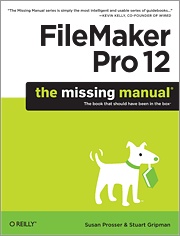MARSHALLTOWN, Iowa, June 28, 1999 — Excel Software today announced
MacA&D 7.0 for system analysis, requirements specification, software
design and code generation. Version 7.0 adds Java code generation,
design namespaces, UML enhancements, dictionary enhancements and
productivity features. MacA&D has diagram editors for process models,
data models, class models, state models, object models, structure
models and task models. Each model shows a different view of a
software system that is integrated through a global data dictionary.
In addition to integrated modeling, the tool provides requirements
specification and traceability, design verification reports,
scriptable HTML reports and complete text import/export features.
WinA&D for Windows 95/98/NT and the document compatible MacA&D for
Macintosh OS 7.x or 8.x are used by thousands of system analysts and
software designers in over 30 countries.
MacA&D 7.0 generates Java, Object Pascal or C++ code from a class
model and associated dictionary information. The generated code
includes ready to compile class declarations with empty function
frames. Programmers write code for the logic of each function using
either the integrated code and browse window built into MacA&D or any
standard development environment. The code generator supports
sophisticated features like nested classes, template classes,
overloaded functions and mapping design elements to different code
folders based on design namespaces.
When developing large software systems, many system analysts,
software designers and programmers must work together to ensure
unique, unambiguous names for design elements and to map design
elements to code files that are usually separated into different code
folders. Large projects can be divided into functional areas and each
assigned to a separate namespace. Namespaces are a powerful design
feature for separating name scope, mapping modeling elements to code
folders and controlling editing access to code files integrated with
the design. The Java language uses the package construct during
implementation to control the scope of names and group code files
into separate folders. The namespace feature added in MacA&D 7.0
extends this concept into the design phase.
MacA&D 7.0 adds interface and component objects to its extensive UML
support. Interfaces are represented in the UML class model as
stereotyped classes or with the abbreviated lollipop notation. To
save development time, operations of an interface can be defined once
and then automatically incorporated into any class that implements
that interface.
The logical class abstraction with attributes and operations is the standard design element of a class model. Components add properties and events to represent a physical element in the software system. Typical components include ActiveX controls, COM objects, CORBA objects and Java Beans.
MacA&D 7.0 ships July 1, 1999 in four product editions, MacA&D
Standard at $495, MacA&D Desktop at $1295, MacA&D Educational at $845
or MacA&D Developer at $1995. Customers should contact Excel Software
for Site License and Upgrade prices or visit
http://www.excelsoftware.com for detailed product descriptions.
For Information Contact:
Excel Software
Ph: (515) 752-5359
Fax: (515) 752-2435
Web: http://www.excelsoftware.com
Email: info@excelsoftware.com



